Free

- 14 lessons
- 0 quizzes
- 96 week duration
Lesson 7: はひふへほ

In this lesson, I will teach you five hiragana.
They are はひふへほ.

は is pronounced as /ha/.
| Tip | I live in a house. は as in “house”.  |
| Stroke Order | 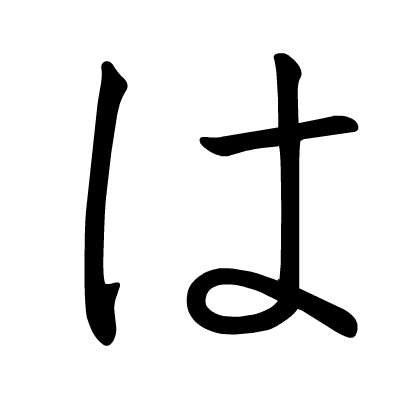 |
| Write it Down | 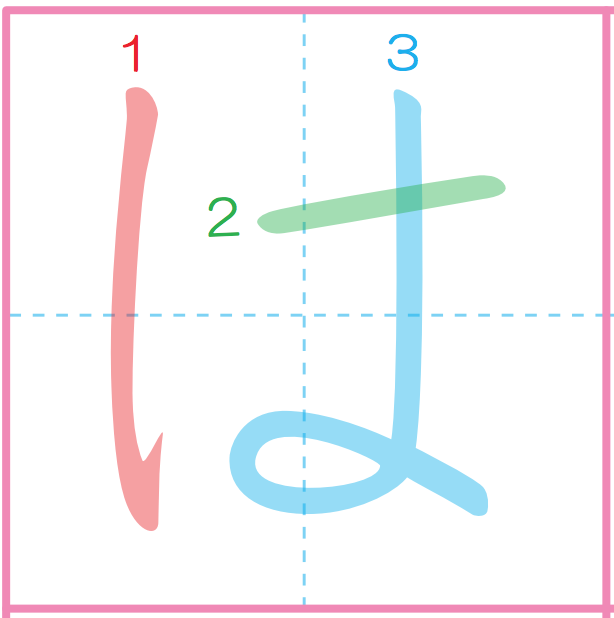 |
| Note | は is read as “wa” when it acts as a particle. (Don’t worry, you will learn particle in Particle Course later. ) For example: わたしはトムです。 I’m Tom. |

ひ is pronounced as /hi/.
| Tip | He is on the wall. ひ as in “He”.  |
| Stroke Order | 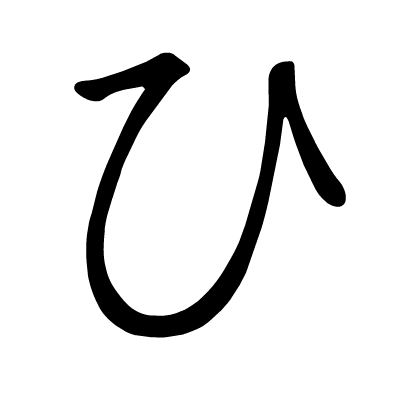 |
| Write it Down | 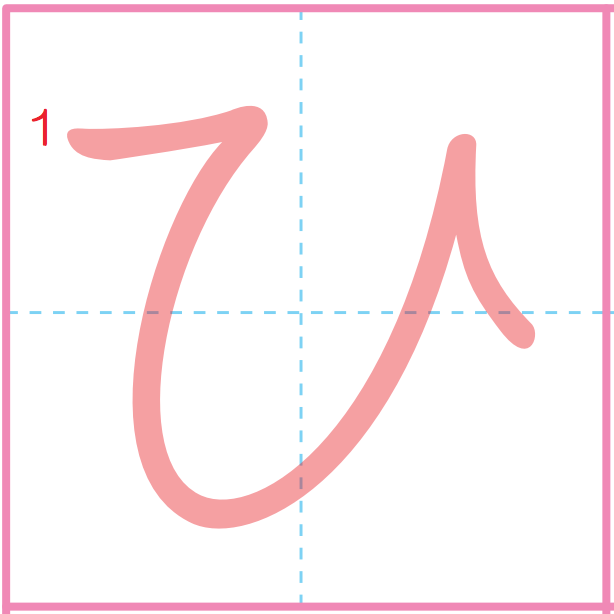 |

ふ is pronounced as /hu/.
(sounds like in the middle of hu and fu.)
| Tip | I climbed Mt.Fuji. ふ as in “Fuji”.  |
| Stroke Order | 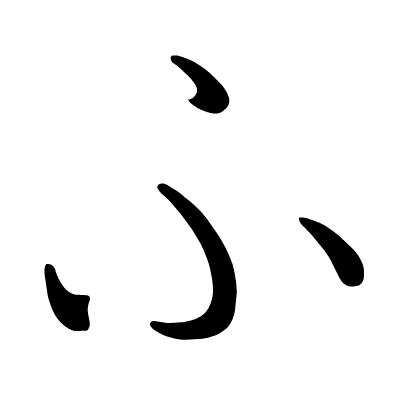 |
| Write it Down | 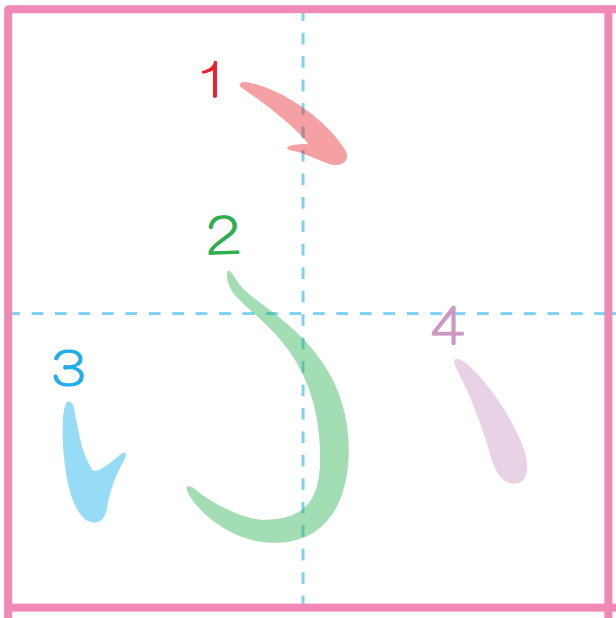 |
| Note | In later quizzes, you should type “fu” to get the correct answer. |

へ is pronounced as /he/.
| Tip | There is a haystack. へ as in “haystack”.  |
| Stroke Order | 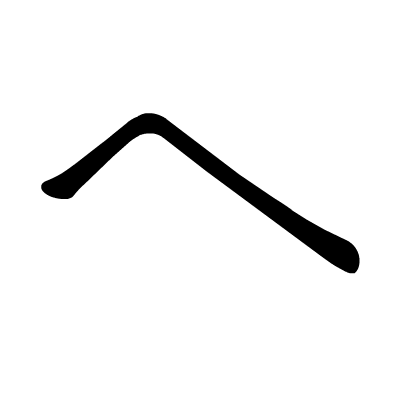 |
| Write it Down | 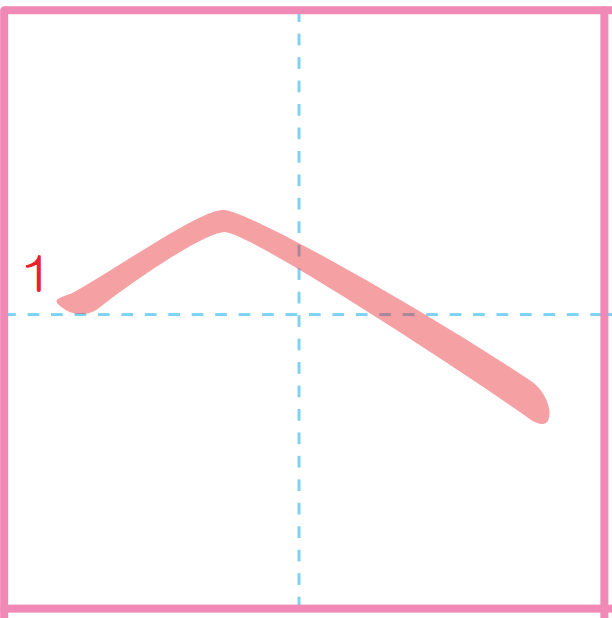 |

ほ is pronounced as /ho/.
| Tip | A house becomes a home with a satellite. ほ as in “home”. 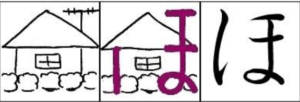 |
| Stroke Order | 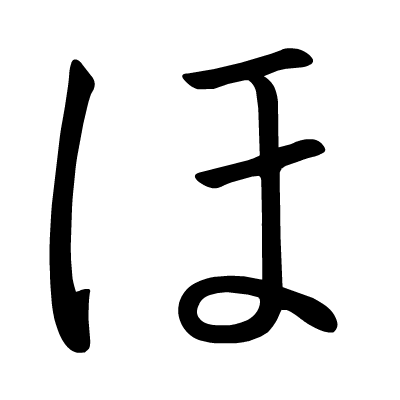 |
| Write it Down | 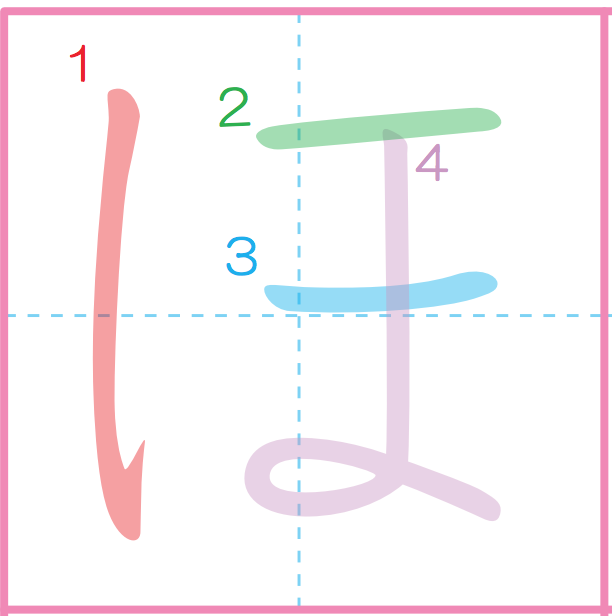 |
Romaji of はひふへほ:
| Hiragana | は、ひ、ふ、へ、ほ |
| Romaji | ha, hi, fu, he, ho |
Vocabulary containing はひふへほ:
| Word | Reading | Meaning | Type |
|---|---|---|---|
| 歯 | は | tooth | Noun |
| 母 | はは | mother | Noun |
| 火 | ひ | fire | Noun |
| 日 | ひ | day | Noun |
| 肺 | はい | lung | Noun |
| 笛 | ふえ | flute | Noun |
| 穿く | はく | to put on (pants) | Verb |
| 履く | はく | to put on (shoes/socks) | Verb |
| 吐く | はく | to spit | Verb |
| 箱 | はこ | box | Noun |
| 引く | ひく | to pull | Verb |
| 低い | ひくい | low | Adj |
| 深い | ふかい | deep | Adj |
| 服 | ふく | clothes | Noun |
| 他 | ほか | other | Noun |
| 橋 | はし | bridge | Noun |
| お箸 | おはし | chopsticks | Noun |
| 星 | ほし | star | Noun |
| 干す | ほす | to dry | Verb |
| 細い | ほそい | thin | Adj |
| 祖父 | そふ | grandfather | Noun |
| 旗 | はた | flag | Noun |
| 八 | はち | eight | Noun |
| 初 | はつ | first time | Noun |
| 人 | ひと | person | Noun |
| 蓋 | ふた | lid | Noun |
| 下手 | へた | bad at | Adj |
| 徒歩 | とほ | on foot | Noun |
| 花 | はな | flower | Noun |
| 鼻 | はな | nose | Noun |
| 羽 | はね | wing | Noun |
| 船 | ふね | ship | Noun |
| 骨 | ほね | bone | Noun |
Patron-only Contents:

This website won’t exist without Patrons’ support since it’s completely ad-free.
So I made some special contents for Patrons.
It’s a way of saying thank you!
Prev
Lesson 6: なにぬねの
Next
Lesson 8: まみむめも